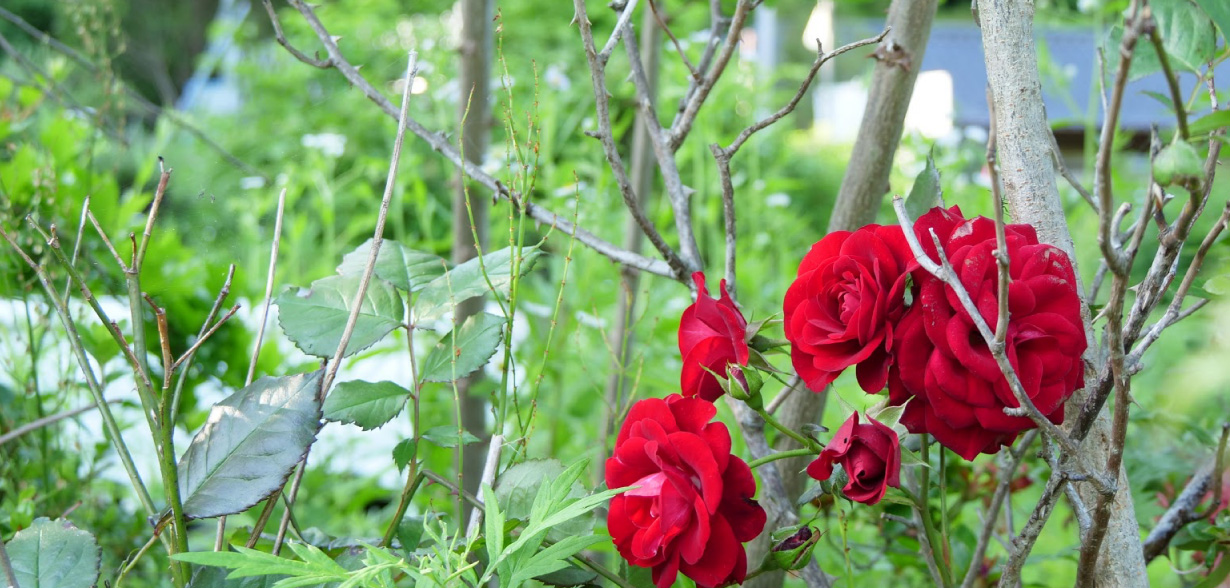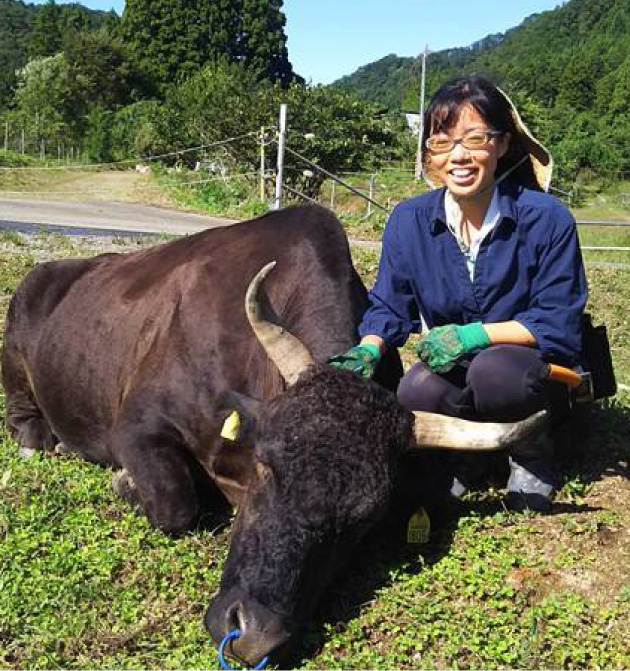Message
I want to create a place
where humans and nonhumans
can flourish together
I am Satsuki Tani, the director of “Furusato to Kokoro wo Mamoru Tomo no Kai”. By providing the cows who survived the Fukushima disaster the opportunity to protect the Fukushima area by eating the tall growing grass of the evacuated zones, I aim to create a place where people, animals and nature can flourish together.
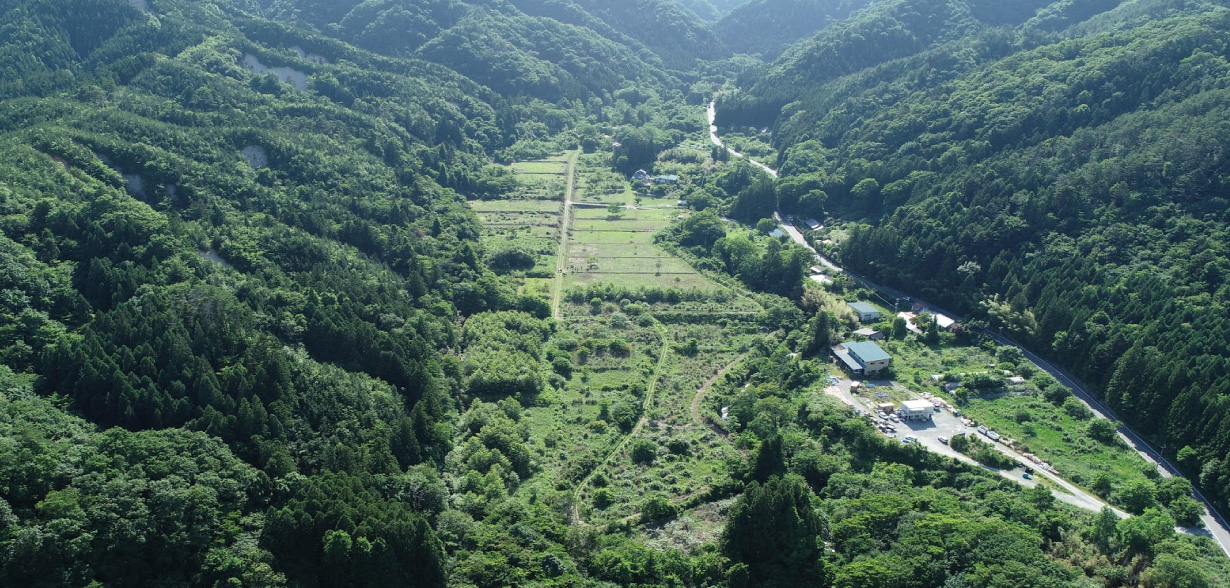
A panoramic view of Moo-Mow Garden. The light-green area is the area that the cows have helped to restore and protect. On the left are the mountains, and on the right the old town; the cows have created a “cow-belt” (a buffer zone) that prevents the wild environment from expanding over the croplands. (Drone picture by Jun Matsumoto).
The cows of our “mowing team” really, really love the taste of fresh wild grass! They will be glad to eat away any weeds or bush. And while doing so, they also preserve the hometown of the former residents who would like to come back, yet cannot. By “mowing” this land, they also prevent wild animals, such as bears and wild boars, as well as disease-carrying bugs, proliferating in the area, restoring the old ecosystem. By maintaining the beautiful landscape, they also prevent the area from becoming a place to dump waste and prevent fire breakouts…all of this while living the peaceful life they deserve.
For us, protecting these cows and this land is also our way to protect the “kokoro” (the “heart” or “soul”) of all of those former residents who could not stand the suffering of these cows, of all those former residents who wanted to take care of this land which their ancestors had taken care of for centuries, even in times of famine.
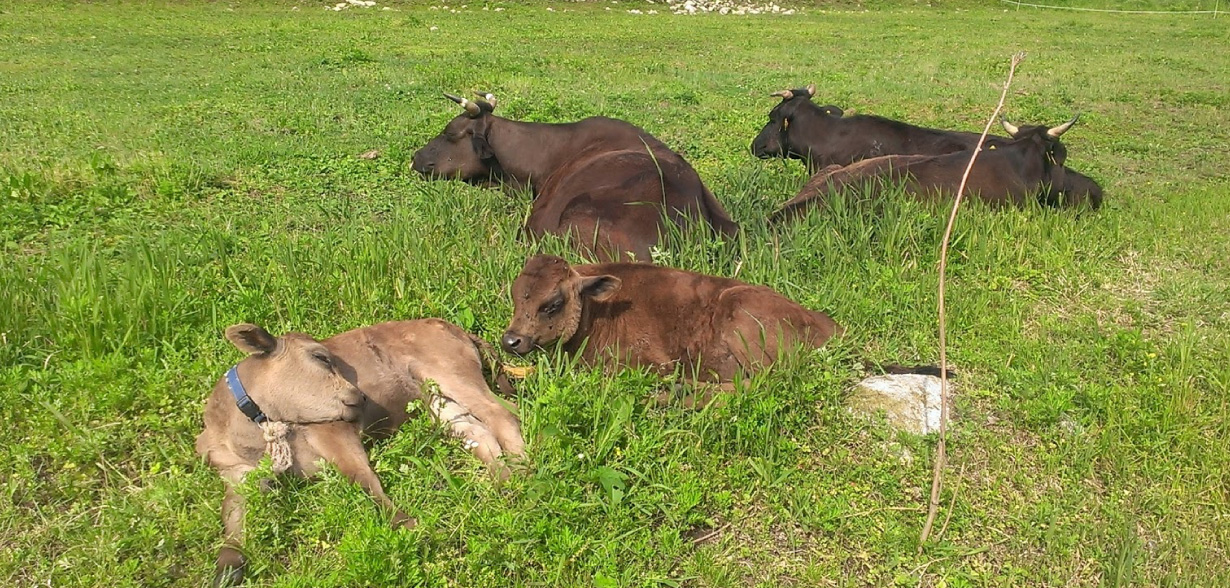
The cows, taking a rest from their “mowing”. Each of them eats nearly 60kgs of grass a day.
I have received warm wishes from many people, and kind support from people from Fukushima and all around the country. Thanks to all of them, these cows that have miraculously survived are today enjoying their daily “mowing” work. They are very friendly, naughty and hard-working. The locals and Moo-Mow Garden volunteers give them a lot of love. Landkeepers and former locals have worked together on this project, building fences or selling handmade souvenirs to cover the expenses of the hay rolls during the winter. We hope that you come and see this cooperative project that is Moo-Mow Garden.
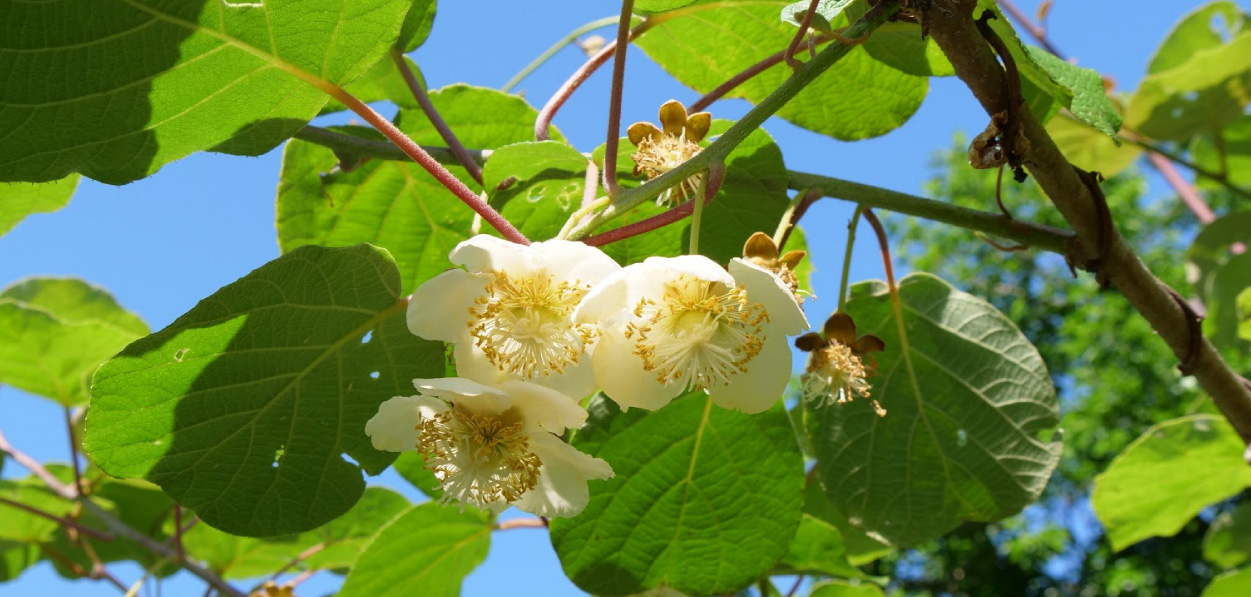
We have started to test the production of local kiwi fruit from the trees that reappeared in the area.
As a last comment, I would like to introduce an unexpected reward of our six years with the cows at Moo-Mow Garden: the revival of the flowers and trees that were affected by the disaster. Just like Fukushima’s animal survivors, the plants that had been long cared for by the former residents of the area have started to appear again, after almost dying off beneath the wild grass and bushes. With the help of the “mowing” provided by the cows, these plants that did their best at surviving the earthquake have come back to life. Cherry, plum and kaki trees, blueberries and strawberries, roses, lilies, temaribana flowers, iris… every year we find more and more of these plants growing back.
The stream from where we scoop the water for the cows brims with fish, even though nobody is releasing new fish into them anymore.
It is my wish to keep protecting this space where humans, animals and nature can co-flourish.
I can only be grateful for your support in this mission.
Furusato to Kokoro wo Mamoru Tomo no Kai Director
Satsuki Tani
